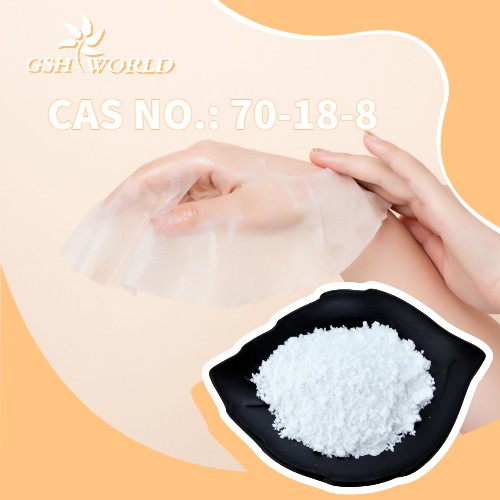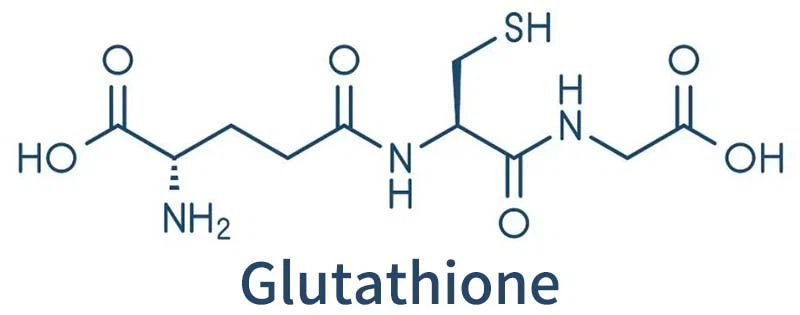What happens when glutathione, astaxanthin, resveratrol, vitamin C, and vitamin E come together?
Summer dress small harness, exposed to the outside of the skin black yellow black yellow, how many times the sun can not help, a white come back to winter, you say this irritating?
My wife takes the sun protection to the extreme, let’s just say that when I go out with her all summer, all I see is her eyes under the sunshade mask.
So sometimes it’s hard to understand the original purpose of this sun protection.
In order to wear good clothes, this big summer out of the door also cover themselves so tightly, and good-looking is not very able to match it?
When it comes to antioxidants, both outside and inside should be grasped.
And “inside” is more complicated.
Then she seemed to understand, a few days to tell me, let me work overtime to look at the information, look for internal, can turn the face into a pearl.
Well, study it

I have also talked a lot about the ingredients before, the current market whitening products, the common effective ingredients are glutathione, astaxanthin, resveratrol, vitamin C, vitamin E and so on.
The mechanism of action of these ingredients in whitening is different, but there are some common points between them.
This time the big head, in addition to glutathione, is the “sum” of these five ingredients.
Glutathione
Glutathione is a widely distributed tripeptide in the body, which has strong reducing ability. It can react with free radicals to remove them from the body, thereby protecting cells.

Glutathione also inhibits tyrosinase activity by competing with tyrosinase for binding sites, thereby reducing melanin production.
Today, new nanometer carrier systems can encase glutathione in a tiny capsule or liposome, allowing it to stably cross the skin barrier and enter the dermis.
This method can not only improve the permeability and stability of glutathione, but also extend its action time in the body.
My wife has used these ingredients for more than two months, together with the daily physical sunscreen, a few days ago, the family went to climb back, she was in a very good state, no black.
In addition to the Na/M carrier system, there are several other components that can work synergically with glutathione, for example, vitamins C and E are both antioxidants in cattle.
Some plant extracts such as green tea polyphenols, arbutin, etc. have synergistic effects, and together inhibit the production of melanin.
1. Antioxidant effects of glutathione:
Glutathione, astaxanthin, resveratrol, vitamins C and E are all powerful antioxidants.
Antioxidant refers to the removal of excessive free radicals in the body, preventing them from causing damage to cells. Free radicals are highly active molecules that attack lipids, proteins and DNA in skin cells, leading to skin aging, pigmentation and other problems.

Glutathione is highly reductive and can bind to free radicals and be converted into harmless substances, thereby protecting cells from oxidative damage.
Glutathione can also promote the regeneration of other antioxidants, such as vitamin C and vitamin E.
Astaxanthin is a carotenoid that has a strong antioxidant effect. It removes singlet oxygen and other harmful free radicals, protecting skin cells from damage.
Astaxanthin can also inhibit tyrosinase activity and reduce melanin production.

Resveratrol is a plant extract that has powerful antioxidant and anti-inflammatory effects.
It can remove free radicals, suppress inflammatory responses, and reduce skin inflammation and redness.
Vitamin C and vitamin E are both classic antioxidants.
V C can remove superoxide anion free radicals and other harmful free radicals, inhibit melanin production;
Vitamin E can remove free radicals such as hydrogen peroxide and singlet oxygen and protect cell membranes from damage.
2. Anti-inflammatory effects of glutathione:
In addition to antioxidant effects, glutathione, astaxanthin, resveratrol, vitamin C and vitamin E also have certain anti-inflammatory effects.

Inflammatory reactions can lead to symptoms such as skin redness, swelling and itching, and accelerate skin aging and pigmentation. Controlling the inflammatory response is essential for whitening and anti-aging.
Glutathione can reduce inflammation by inhibiting the production and release of inflammatory factors.
Studies have found that glutathione can reduce the levels of tumor necrosis factor-α (TNF-α), interleukin-6 (IL-6), and prostaglandin E2(PGE2) in the skin, thereby reducing the inflammatory response.
Astaxanthin also has some anti-inflammatory effects.
It can inhibit the production and release of inflammatory mediators, reduce skin inflammation and redness. Astaxanthin can also promote the skin repair and healing process.

Resveratrol can suppress inflammation by regulating the function of immune cells.
It can activate the ability of immune cells such as macrophages and neutrophils to enhance their ability to clear pathogens and harmful substances;
It can also inhibit the production and release of inflammatory factors.
Vitamins C and E can also reduce inflammation.
Vitamin C reduces the levels of interleukin-6 (IL-6) and prostaglandin E2(PGE2) in the skin;
Vitamin E can reduce inflammation by inhibiting the production of inflammatory factors.
3. Moisturizing effect:
Moisturizing is one of the key factors in keeping skin hydrated and elastic.
When the skin lacks moisture, there will be dry, rough, dull and other problems.
Moisturizing is equally important for whitening and anti-aging.
Glutathione can enhance moisturizing effects by promoting collagen synthesis and maintaining skin barrier function.
Studies have found that glutathione can increase the collagen content and the number of elastic fibers in the skin;
It can also improve skin barrier function and reduce water loss.

Astaxanthin and resveratrol can enhance the moisturizing effect by promoting hyaluronic acid synthesis and maintaining skin barrier function.
Hyaluronic acid is a naturally occurring polysaccharide in human skin with excellent moisturizing properties.
Vitamin C can promote collagen synthesis and maintain skin barrier function;
Vitamin E can reduce skin inflammation and swelling by inhibiting the inflammatory response, thereby improving skin condition and moisturizing effect.




